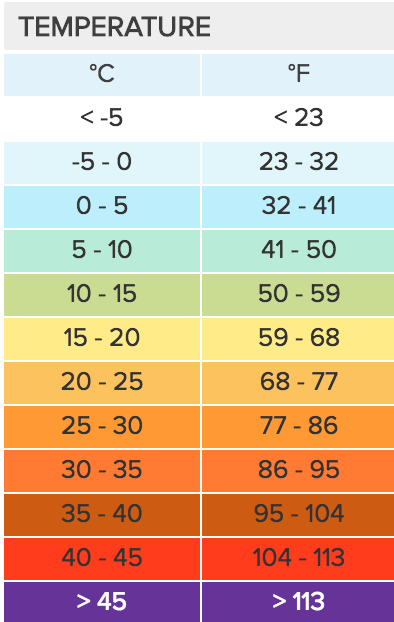Forecast
Brooms Head (29.6047°S, 153.3331°E, 0m AMSL) set as my default location ›
-
My MLA
-
Current condition
TODAY17° 23° showers easing Chance of rain: 90% Likely amount: 1-5mm First
light

Last light Sunrise Sunset 5:47am EST 6:12am EST 5:16pm EST 5:41pm EST NOW22.1° Feels Like: 19.7° Relative Humidity: 64% Dew: 15.0° Wind: S 20km/h Gust: 26km/h Rainfall since 9am: 0.0mm Pressure: 1021.1hPa -
Today Weather
Brooms HeadNow22.8°cFeels Like:19.4°Wind:SE 20km/hGusts:26km/hHumidity:50%17°Min23°MaxToday in Brooms HeadPartly cloudy. High chance of showers along the coastal fringe, slight chance elsewhere. Winds S/SE 15 to 25 km/h becoming light in the evening. Daytime maximum temperatures in the low to mid 20s.Tomorrow17°Min23°MaxPartly cloudy. Very high chance of showers along the coastal fringe, medium chance elsewhere. Winds S/SW 15 to 20 km/h tending S/SE in the middle of the day then becoming light in the evening. Overnight temperatures falling to between 12 and 15 with daytime temperatures reaching the low to mid 20s. -
Radar
-
Popup Radar
-
Warnings
There are no current warnings for Brooms Head
-
7 day forecast
Today: Partly cloudy. High chance of showers along the coastal fringe, slight chance elsewhere. Winds S/SE 15 to 25 km/h becoming light in the evening. Daytime maximum temperatures in the low to mid 20s.
Forecast for Brooms Head (29.6047°S, 153.3331°E, 0m AMSL) Fri Sat Sun Mon Tue Wed Thu Summary Minimum 17° 17° 17° 17° 16° 17° 16° Maximum 23° 23° 24° 24° 25° 23° 22° Chance of rain 90% 90% 70% 30% 90% 80% 90% Likely amount 1-5mm 5-10mm 1-5mm < 1mm 1-5mm 5-10mm 5-10mm UV index High High High High Moderate High High Fire Danger Rating No Rating No Rating No Rating No Rating - - - Frost risk Nil Nil Nil Nil Nil Nil Nil 9am 3pm 9am 3pm 9am 3pm 9am 3pm 9am 3pm 9am 3pm 9am 3pm Wind speed 11
(km/h)24
(km/h)19
(km/h)22
(km/h)9
(km/h)12
(km/h)5
(km/h)8
(km/h)6
(km/h)11
(km/h)22
(km/h)30
(km/h)19
(km/h)23
(km/h)Wind direction SSW S SSW S S SE SW ESE W ESE SSW S SSW S Relative humidity 75% 64% 78% 75% 78% 71% 80% 70% 80% 65% 79% 71% 78% 69% Dew point 15°C 15°C 17°C 17°C 17°C 17°C 17°C 18°C 17°C 17°C 16°C 16°C 15°C 15°C -
28 Day Rainfall forecast
-
12 Month Rainfall Forecast
Brooms Head Rain Forecast
Brooms Head 12-month Rainfall ForecastAprMayJunJulAugSepOctNovDecJanFebMar20242025986766674758105012 - 34 - 78 - 910Well below normalBelow normalNear normalAbove normalWell above normalIssue Notes - Issued Apr 23
ENSO status: Inactive/Neutral. El Niño ended. IOD status: Neutral, becoming strongly positive. SAM status: Leading to neutral and returning positive. The El Niño Southern Oscillation (ENSO) is presently in an inactive phase, for the first time since August 2021. Ocean cooling continues over the eastern Pacific Ocean as sea surface temperatures approach near-normal conditions. Warmer than normal waters are present across the western Pacific Ocean, including the Coral Sea with added moisture and humidity to influence weather conditions in the eastern regions of Australia. The atmosphere continues to be firmly neutral after weakening early in the year with 3 out of 7 global models forecasting a La Niña to develop this coming winter season. A neutral ENSO typically has no significant impact on Australian rainfall during winter. The Indian Ocean Dipole (IOD) is in a neutral phase, although record-high ocean temperatures across the northwest Indian Ocean have the IOD index just tipping into a positivethreshold value. Persistent southeasterly winds over the eastern Indian Ocean during the previous month are forecast to ease with below-average wind speeds to develop off northwest Australia and the eastern Indian Ocean during the winter season. All international models are suggesting the IOD will strengthen into a strong positive phase over the next 2-3 months, with significant upwelling to start near Indonesia possibly following May. A positive IOD reduces the number of northwest cloudbands that cross Australia during winter and spring, thus reducing rainfall across central and southeastern parts of Australia. The Southern Annular Mode (SAM) is currently positive (mid-April) with the outlook favouring a neutral phase forecast in May and then the likelihood of returning to a positive phase during winter. A positive SAM increases easterly winds, increasing rainfall and thunderstorm activity in the east. A positive SAM also reduces the impact of cold fronts and decreases the rainfall over southernAustralia. Rainfall outlooks are showing above-average rainfall over winter for WA and central and northern SA, and eastern regions of QLD and NSW. Conversely, below-average rainfall is expected for western TAS, southern SA, and most of VIC.
-
Popup - Daily historical
-
Long range rainfall forecast
-
Past 5 Days
Brooms Head Past 5 Days
This MonthMinimum Maximum Rainfall Monday
Apr 2218.9 °C 23.7 °C 30.0 mmTuesday
Apr 2318.5 °C 24.7 °C 15.8 mmWednesday
Apr 2418.3 °C 24.9 °C 2.6 mmThursday
Apr 2517.7 °C 23.9 °C 0.0 mmFriday
Apr 2617.3 °C 22.5 °C 11.8 mmLegend -
Almanac
Almanac
Brooms Head minimum temp history (29.6047°S, 153.3331°E, 0m AMSL) MAXIMUM TEMPERATURE MINIMUM TEMPERATURE Hottest this month 30.0° 05/04/2024 Coldest this month 14.8° 11/04/2024 Hottest on record 33.1 08/04/1966 Coldest on record 7.2 30/04/2008 Hottest this year 37.2° 26/01/2024 Coldest this year 14.8° 11/04/2024 Long term average 24.0° Long term average 16.4° Average this month 26.1° Average this month 18.8° Hottest April On Record Avg. max. temp. 26.3° 1968 Coldest April on record Avg. min. temp. 14.0° 1944 Brooms Head rainfall history (29.6047°S, 153.3331°E, 0m AMSL) RAINFALL Wettest This Month 60.4mm 21/04/2024 Total This Month 181.0mm
14.0 daysLong Term Average 160.1mm 14.0 days Wettest April on record 629.4mm 1988 Driest on record 12.7mm 1922 -
Year to Date
Brooms Head Year To Date
Average Rainfall To Apr 651.7mm 56.9 day(s) Total For 2024 592.2mm 59.0 day(s) Total To This Day 2023 295.2mm 51.0 day(s) Wettest Day 60.4mm Apr21 Lowest Temperature 14.8°C Apr11 Highest Temperature 37.2°C Jan26 -
Popup - Radar
Weather Radar for Australia
Australia Radars
- Adelaide
- Adelaide Airport
- Adelaide Sellicks
- Albany
- Alice Springs
- Bairnsdale
- Bowen
- Brewarrina
- Brisbane
- Brisbane Airport
- Brisbane Marburg
- Broadmeadows
- Broome
- Cairns
- Cairns Airport
- Canberra
- Carnarvon
- Ceduna
- Coffs Harbour
- Dampier
- Darwin
- Darwin Airport
- Emerald
- Esperance
- Eucla
- Geraldton
- Giles
- Gladstone
-
Popup - Monthly historical
-
Climatology
Climate History
Brooms Head Climatology
Brooms Head Long-Term Averages
Long-Term Averages Jan Feb Mar Apr May Jun Jul Aug Sep Oct Nov Dec Ann Mean Max (°C) 26.5 26.6 25.8 24.0 21.7 19.6 19.1 20.1 21.8 23.2 24.5 25.7 23.2 Mean Min (°C) 20.3 20.4 19.3 16.4 13.3 10.9 9.6 10.4 12.9 15.4 17.4 19.1 15.4 Mean Rain (mm) 139.9 161.0 190.7 160.1 154.4 135.0 99.8 75.6 58.6 79.7 91.9 117.1 1463.9 Mean Rain Days 12.7 13.9 16.3 14.0 13.1 11.2 9.7 8.7 8.9 10.2 10.6 11.7 140.8



